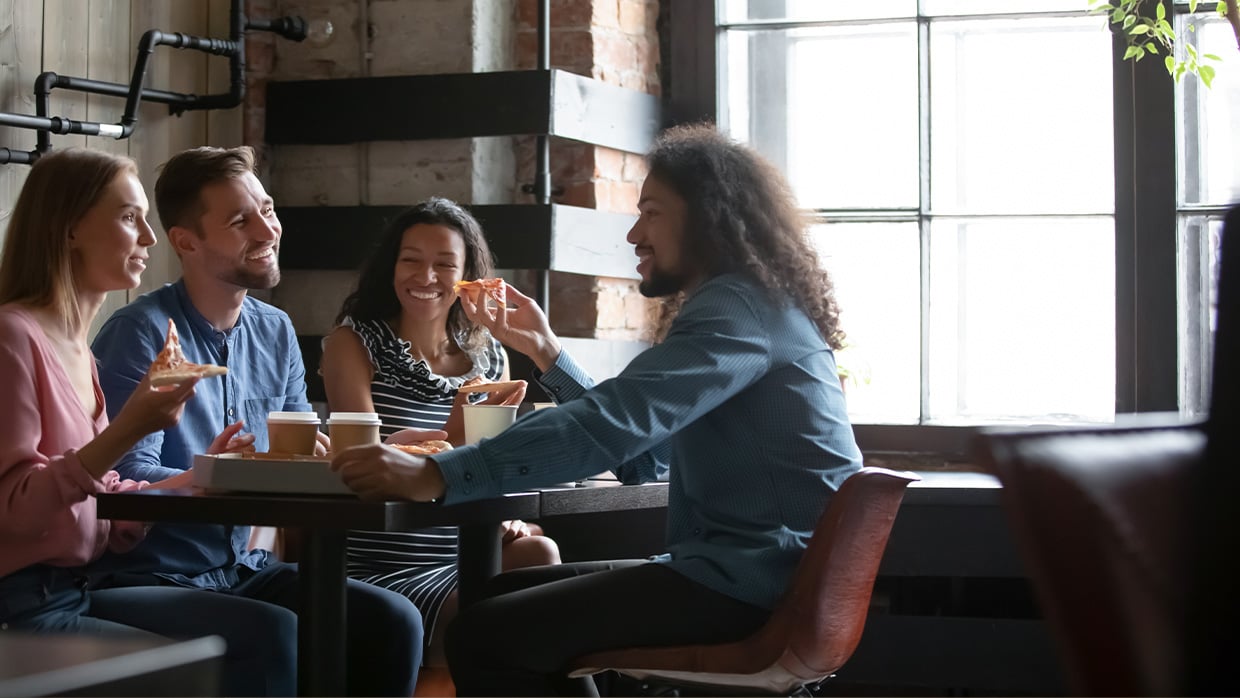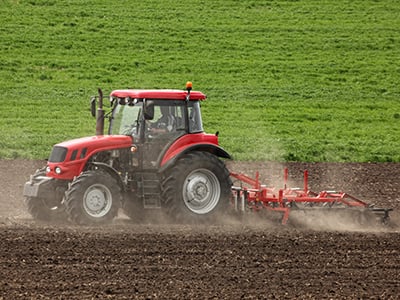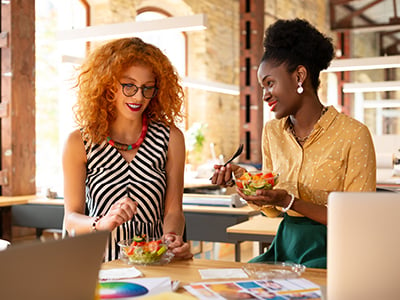“You cannot have an effective Zoom lunch”

In conversation with Barton Seaver, world-leading sustainable seafood chef, author and educator
As organizations adjust to new ways of working and make plans for a safe return to the workplace, many are rethinking the role that food – especially sustainable food – will play in shaping the new work environment.
Barton Seaver is an award-winning chef and author of eight books. As Director of the Sustainable Seafood and Health Initiative at the Harvard School of Public Health, he has led initiatives to inform consumers and institutions about how our choices for diet and menus can promote healthier people, resilient ecosystems, more secure food supplies, and thriving communities. Here, we talk to Seaver about food sustainability today, and how the new workplace can cater to it.
You have built your career on educating about the benefits of sustainable seafood. How has the concept of sustainability changed in that time?
Sustainability is one of the least sexy ideas in that it was about keeping things the same. Sustainability really meant maintaining access to the products we already had rather than looking at food systems holistically.
"Now, sustainability is not about fixing food; it’s about using food to help sustain people’s demands."
Before food even gets on a truck to get to us, we need to look at all the other areas that are impacted by the food supply chain such as gender equity, global political-trade issues, refugee status and human rights.
How, if at all, has the pandemic contributed to these changes?
In the last year, what's really come to the surface is that it's not just sustainability on the farm or in the water, and then sustainability on the plate. There is this giant middle in processing that we had long overlooked. For example, while your beef may have been sustainable, the treatment of workers in the supply chain may have proved unsustainable.
That is one of the best things to come out of Covid-19; the sudden economic and moral imperative to invest in sustainability throughout the supply chain.
What responsibility do organizations have for offering their employees sustainable food choices?
 Food is a principal determinant in the health of employees. Sustainable food is not just about the environment, it’s about using food to sustain people.
Food is a principal determinant in the health of employees. Sustainable food is not just about the environment, it’s about using food to sustain people.
Additionally, we know modern animal agriculture is a vector for disease transfer, and antibiotic resistance. If businesses don't want more pandemics, maybe one way to mitigate that is to look at these very well-articulated sources of danger and act. If we see food as a principal driver of risk to the overall business environment, we have the chance to drive significant change, too.
What do you think the future of food at work will be? What kinds of trends do you see coming to the fore?
 The future of food in the workplace is a means for organizations not only to facilitate a thriving ecosystem, of which humans are the nucleus, but also to use food as a platform, and as a universal language, which communicates directly to employees that they are loved. More and more so, this type of broad, emotionally oriented thinking is relevant in the workplace.
The future of food in the workplace is a means for organizations not only to facilitate a thriving ecosystem, of which humans are the nucleus, but also to use food as a platform, and as a universal language, which communicates directly to employees that they are loved. More and more so, this type of broad, emotionally oriented thinking is relevant in the workplace.
Food at work is going to look far more diverse. For organizations, that means learning how to have a very coherent and cohesive food strategy, and a clear understanding at C-suite level of the purpose of food service and how to measure for desired outcomes.
Physically, the centralized hub us going to have less importance, given staggered work schedules and driven by younger generations, who eschew the three meal per day pattern. An example of this would be to look at Google's campuses, where food is integrated into every aspect of employee experience.
When it comes to food in the context of work, what are some of the key considerations that organizations will need to make moving forward?
Some of the most intangible, but consequential and potentially profitable, spaces in any building are the common areas. And the cafeteria is used for far more than calorie delivery. It's used for cross-pollination. It's used for building that sense of community in which people feel they belong. It's what humanizes a place far more than an ergonomic desk, or a new chair. That is an essential part of what people missed out on with Zoom – you can have an effective Zoom meeting; you cannot have an effective Zoom lunch.
The challenge for employers moving forward is going to be, how do you build into corporate thinking the importance of that cultural aspect of food? It is an incredible opportunity right now because we are re-imagining so much of our work infrastructure.
This article is part of Sodexo’s ‘Experience Next’ thought leadership series on the work-life transformation.
Are you ready to transform how, where and when food works for your business every day? To learn more, read about how our oceans ensure our future.
